Profile: Pauline Ferrand-Prevot on Training with Cecile Ravanel, Depression, Disordered Eating, & More
“I knew in the dry I would be almost unbeatable.” There is no ego when Pauline Ferrand-Prevot talks about the Tokyo 2021 Olympics. Through the highs and the lows, her voice is quiet, matter of fact. “I never, ever imagined that it could be raining. It's crazy, but I even didn't have the right tires for the terrain. Now, I can say, ‘I'm so stupid,’ but it is crazy.”
There is a level some athletes reach, when they have worked, sacrificed, and won, where they can talk about big things in simple terms. Sitting in the team van, huddling from the wind blowing from the Gulf of St Tropez, it is easy to forget that the petite, blonde lady huddling in her big, puffy jacket to keep warm may be the greatest bicycle racer of her generation. She is the only bicycle racer ever to hold World Championship titles in road, mountain bike, and cyclocross at the same time. The expectation was that Pauline would go on to dominate women’s road cycling.
Many check books would have opened for a young rider with those kinds of results, they eclipse the palmares of a young Wout van Aert or Mathieu Van Der Poel, but Pauline spurned the more traditional and lucrative route of pursuing a career in road cycling to follow her passion - mountain biking. “I don't even know how much I earn,” she admits. “I'm not lying, I want to earn my life in cycling because you need to eat and you need to have money, like everyone. But it's not the priority, I want to follow my passion and enjoy my life.”
It is hard for most of us to even imagine her last year. The Olympic cycle was the culmination of five years’ dedication, five years of obsessing and sacrificing. All this leading to a fragile, three-week window of form. Finally, a one-and-a-half-hour slot where your entire life’s work will be judged. Imagine your entire working life distilled into a single point, then throw the expectations of an entire country on top of that. How would you cope if it went wrong?
More than almost anybody else, Pauline knows how low it can go, because she carried much of the same pressure into the Rio Olympics in 2016. “After Rio, I was very depressed,” She recalls. “For a few months. It was the hardest time of my life and I had to spend a few weeks in hospital. So I said, ‘Ok, after Tokyo, even if don’t win or don't have a good race, I never want to be like in Rio again’.”
This past winter has been a time for unflinching reflection. “After this Olympic season, it was important to just sit,” she explains. “To write on paper what was good from the last five years because the Olympic season is just one year, but we prepare for so long before. So it was very important for me to sit and to just know what was good or not. I know I can be super strong physically. I know I can be super-well prepared mentally. These are the things I know I can do. I'm good at arriving at a one-day race, knowing that I will be in super shape.”
Pauline recognizes that the sport is changing though, “I think our sport is growing and it's becoming more technical and more explosive. Before it was two-hour races, and now it's only one hour and fifteen minutes. I think you have to work differently. I'm 30, I'm not old, but yeah… I come from the old generation with my past on the road bike. So my technique is good, but I'm not the best. I knew this winter that it was my weakness and I have to work on it. The other point is that I never did strength training in the past, I started this winter to have more explosivity and more energy. I think it can make a big difference.”
There is a word Pauline uses when analyzing her performance from last summer - “skinny”. Picking her up on it, she is keen to talk about it, “It's really good to speak about it because a lot of young girls are making mistakes with weight and being skinny.”
There is a lot of history to unpick around this subject, “In cross-country, there was always a lot about weight because if you are skinny, you can climb faster. A lot of young girls didn't eat and wanted to be skinny to be strong. It's an endurance sport, so you cannot be too heavy to go fast, but because there is less and less long climbing, you don't you don't need to be super skinny.”
“You know that I made this mistake in the past?” Again, Pauline drops a huge truth in her quiet matter-of-fact way. “I was not eating enough. In the beginning, you are super good, it is like you are flying. It's crazy because you didn't change anything in your training, but because you have less weight you are flying on the climbs. And because you are like this, you want to more and more. It's like when you have one tattoo, you want more and more… it's the same.”
“You feel good because you are skinny,” she continues, “but you are only like this for a few weeks or a few months, if you are lucky. After it's a total disaster because your body is empty and because we are women, we need fat because you are meant to make babies. It's huge damage for your body and you can’t see this before, you know? It's terrible because you can’t feel it and you can’t see it, and when it happens, you are nothing, you have no power, you are tired, you don't have your cycle… it’s terrible. It takes months or years to recover from that. And yeah, it's hard. It's hard because it's good and then it's not good, and you don't really realize why at the time.”
Once you have recognized this tendency in yourself, how do you live with it? For Pauline, the answer is in the detail, “It’s really annoying, but I need to weigh all my food when I want to be at a certain weight.”
“I talk with my trainer and he might say, ‘Ok, you have to lose two kilos, but not too fast’.” While most people are familiar with the idea of counting calories to lose weight, Pauline comes at the problem from the other side, “He might say that I have to eat 2000 calories per day. That's pretty good, you can still lose weight with two thousand calories, but you will not lose two kilos in one month, it will take longer. It's safer. For me, I found that if I weigh all my food and I put it on an app, then I have the number of calories I eat per day. Because I'm an extreme person. If my trainer told me to lose two kilos, I would lose it in a really short time, you know?”
Over the past winter, Pauline reordered her life to work towards her next goal - Paris 2024. Top of the list was moving to Frejus to be near her technical coach and former MTB enduro world champion, Cecile Ravanel. After we talk, she heads out onto the test track at the Boulouris CREPS center. Jumps are today's objective.
The center has built replicas of some of the largest jumps in cross-country racing for riders to familiarise themselves with. What is most impressive is that Pauline clearly is not comfortable on them. She looks like doesn’t really want to be doing this, but has decided that this is what she needs to do to win, so she clears every single one of them, over and over again. That kind of strength of willpower is a rare thing. Yet to see Cecile and Pauline together, you might forget this is serious work with a real risk of injury as the pair can barely stop laughing when they are together.
A little later, reigning downhill world cup champion, Valentina Höll, joins them on the pump track. Pauline is thriving being surrounded by other exceptional athletes, “It is like a dream for me to ride with Vali, because, for me, she is the strongest woman in downhill today. It’s just pure happiness and I can learn a lot. She gives her advice, but not too much, so it’s super helpful and I can understand more. There’s no rivalry because we are not coming from the same discipline, so it’s just super helpful. And Cecile was the biggest star in enduro - it’s all about learning with humility and having fun.”
When you understand that Pauline’s career is defined by the Olympics, you can see the phases clearly. In her first phase, she followed the path expected of her, racing on the road, trying to fit into a fairly traditional career path. After the disappointment in Rio, you can see the shift - she began to withdraw from road racing and it is no coincidence that she ended up working with one of the two people ever to defend an Olympic XCO title {Paolo Pezzo won in both 1996 and 2000).
For 2022, she is still part of Julien Absalon’s team, despite their personal split. She is travelling to races with Cecile, Cecile’s husband and business partner, Cedric, and Barry Austin, her coach. To put herself in the best possible mindset, she is consciously building a group of people that make her comfortable, “I need to be in a very good atmosphere and to feel very good. These people help me feel good and, for me, it's the most important thing.”
And that is the start of her third phase. This past winter she has spent more days racing enduro than road bikes, bagging laps on a DH bike, and showing up to the Frejus kids’ club to ride with them. Looking through her social media from this past winter, she is smiling in almost every frame.
It is too early for Pauline to know what her program might look like heading to the Paris Olympics, team negotiations will happen later. Yet when you look at her journey as one of self-realization as she matures as an athlete, for this next phase, it is clear that she intends to be at the center of it all and, maybe more importantly, she intends to have fun.
Author Info:
Must Read This Week
Sign Up for the Pinkbike Newsletter - All the Biggest, Most Interesting Stories in your Inbox
PB Newsletter Signup
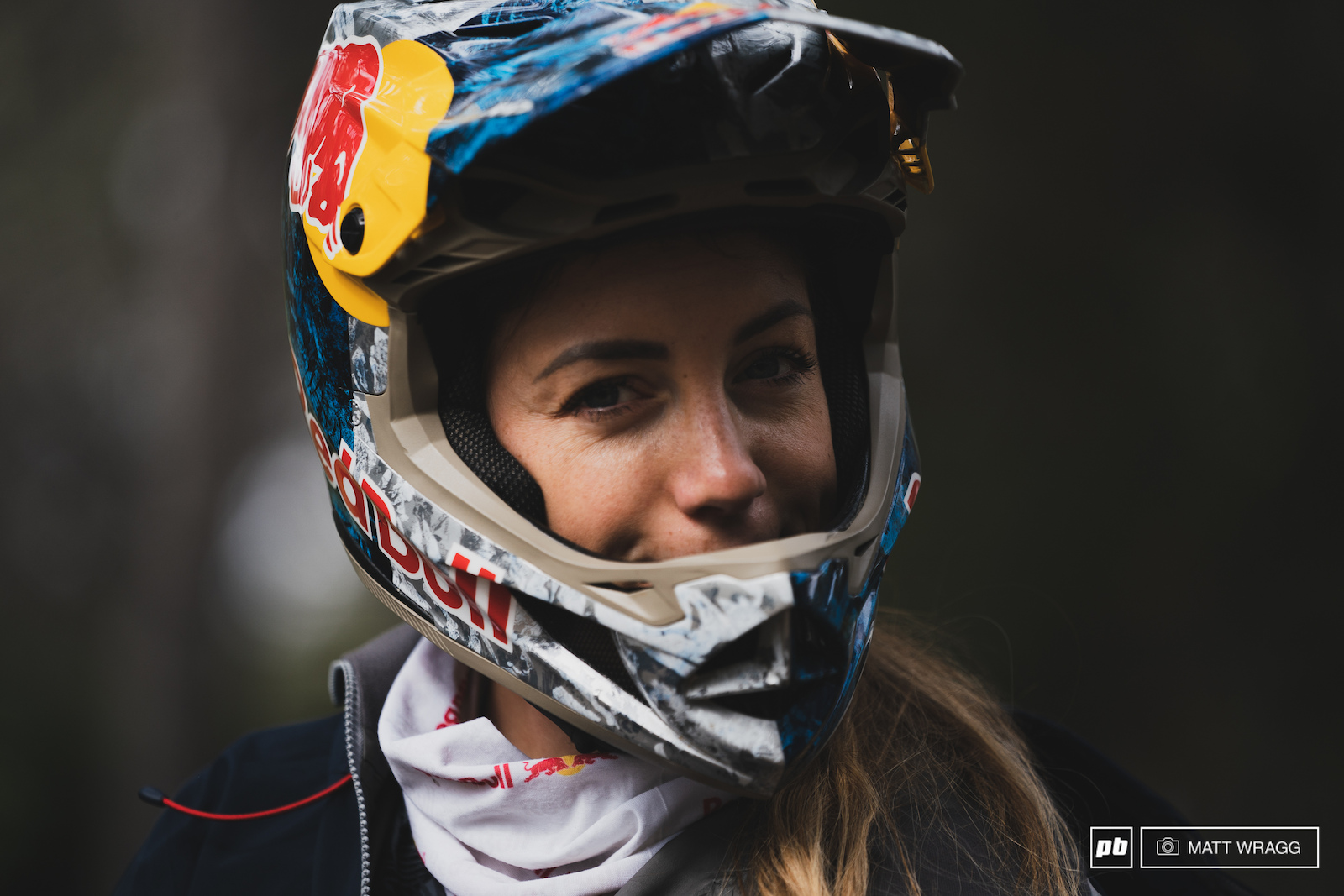
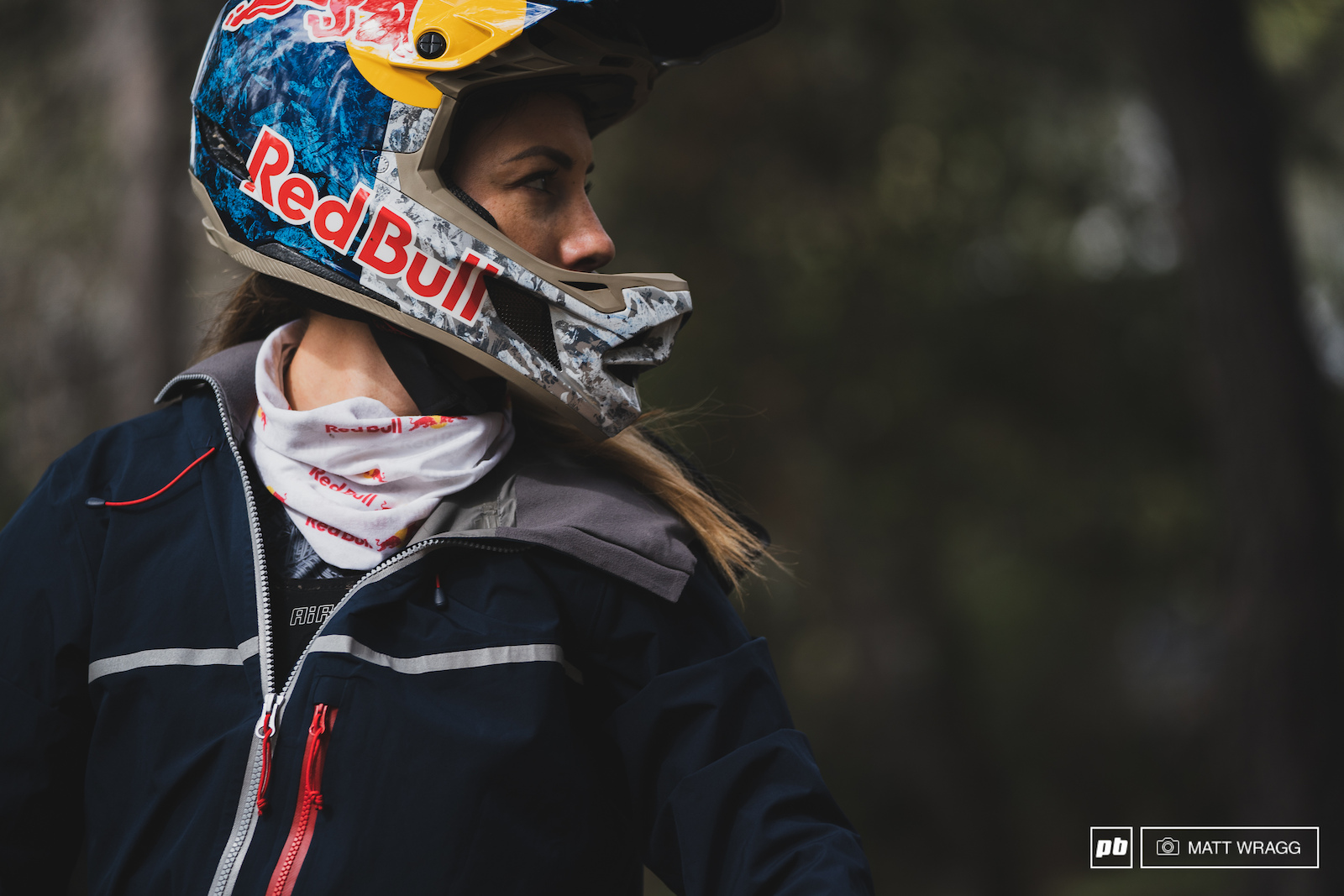
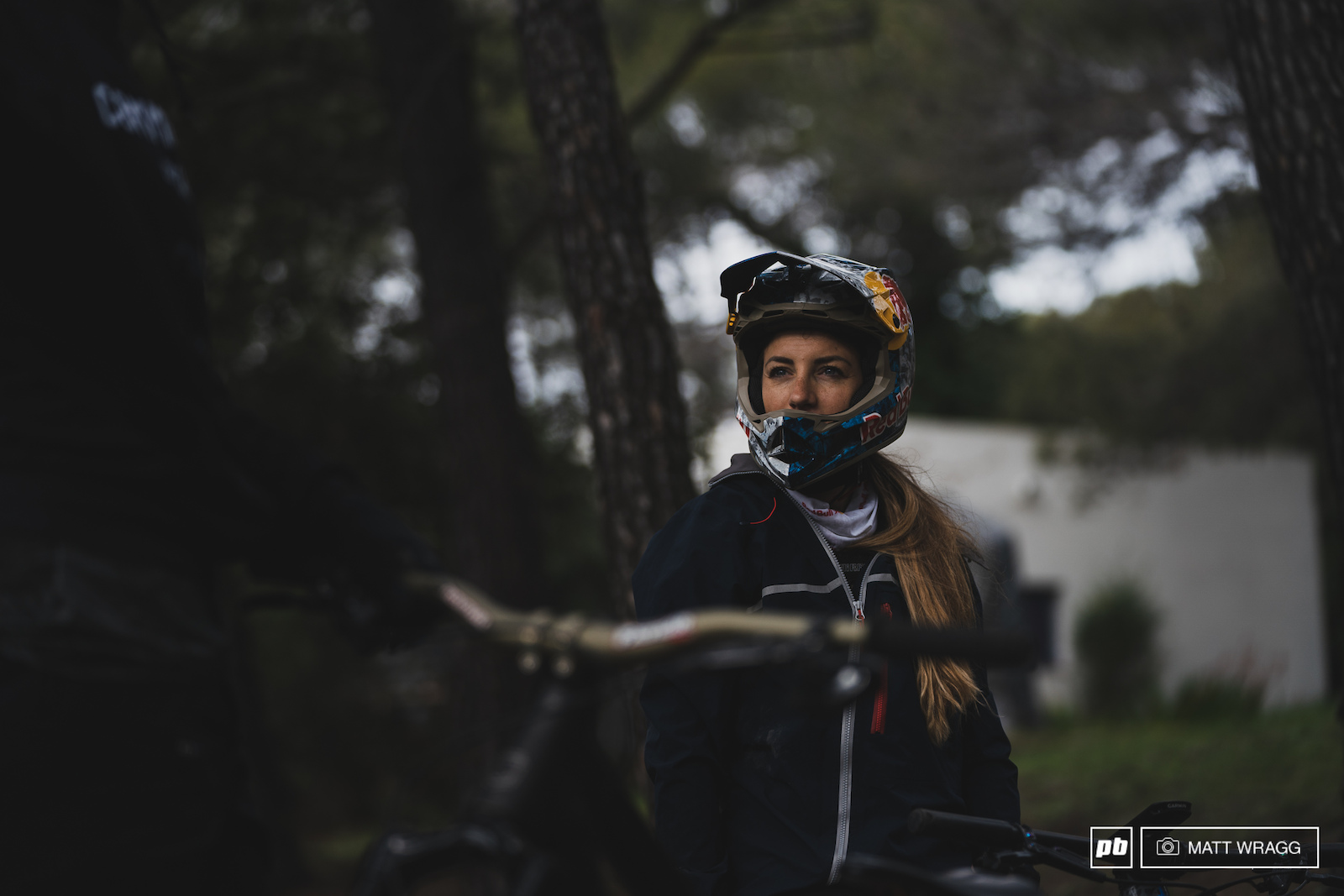
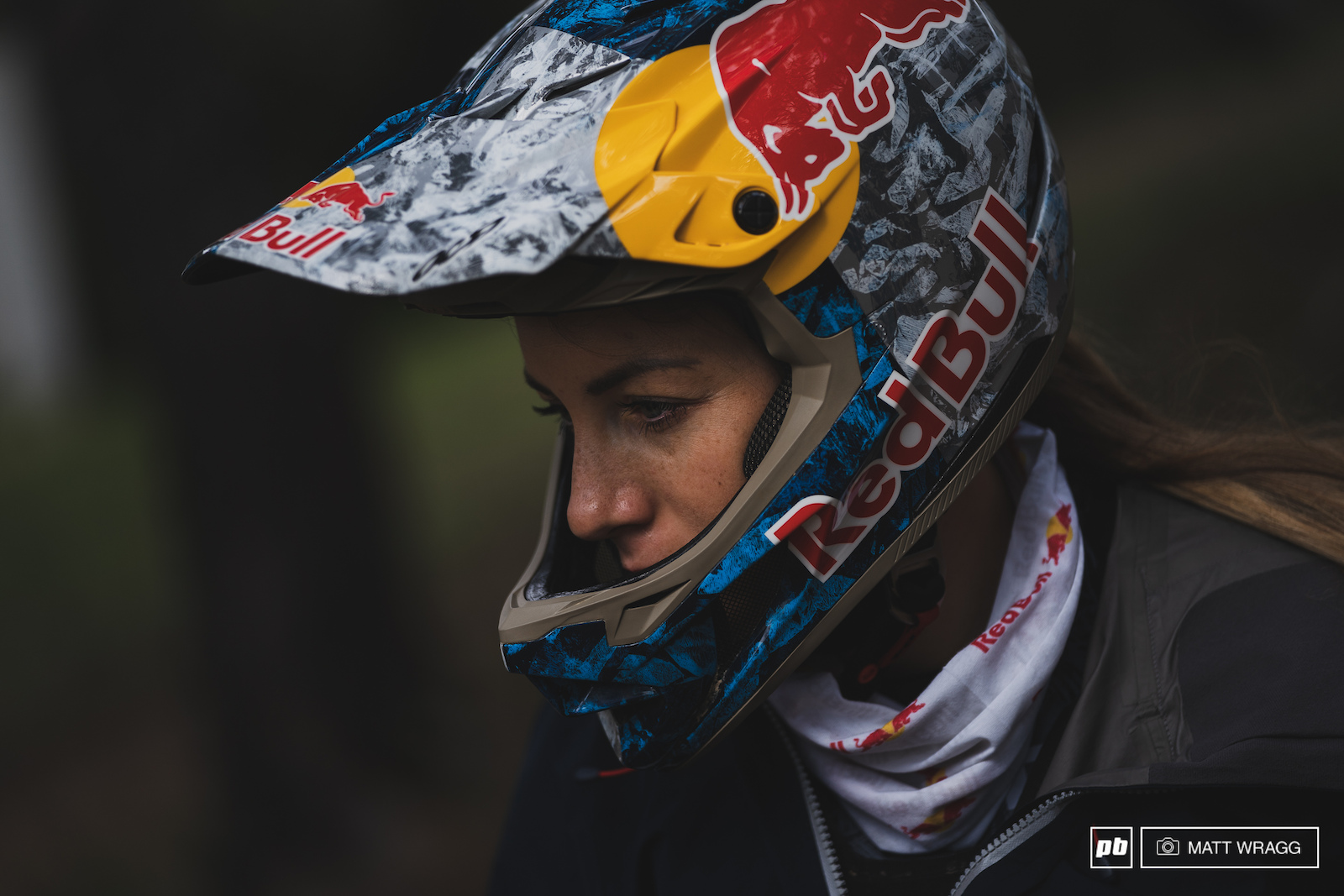
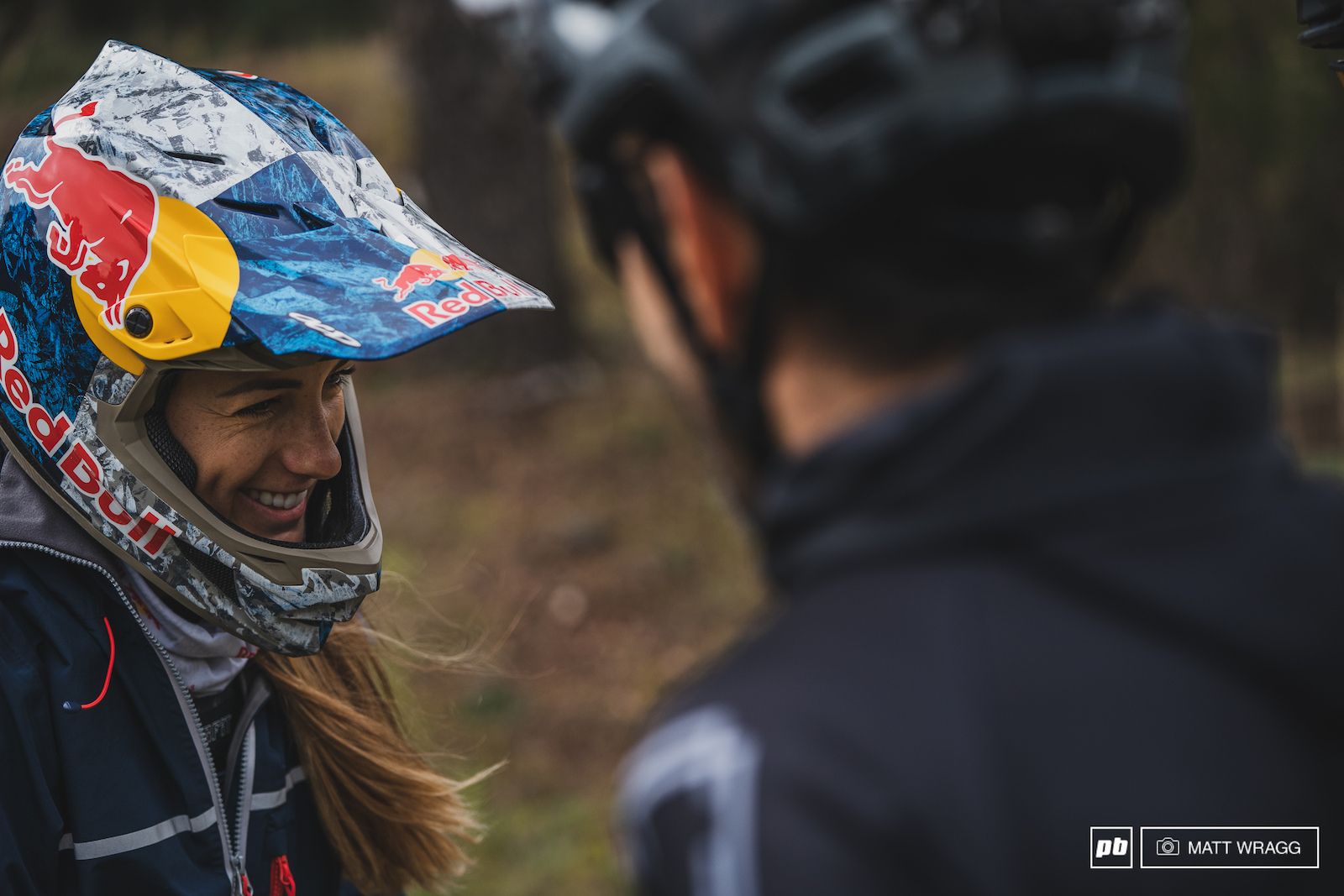
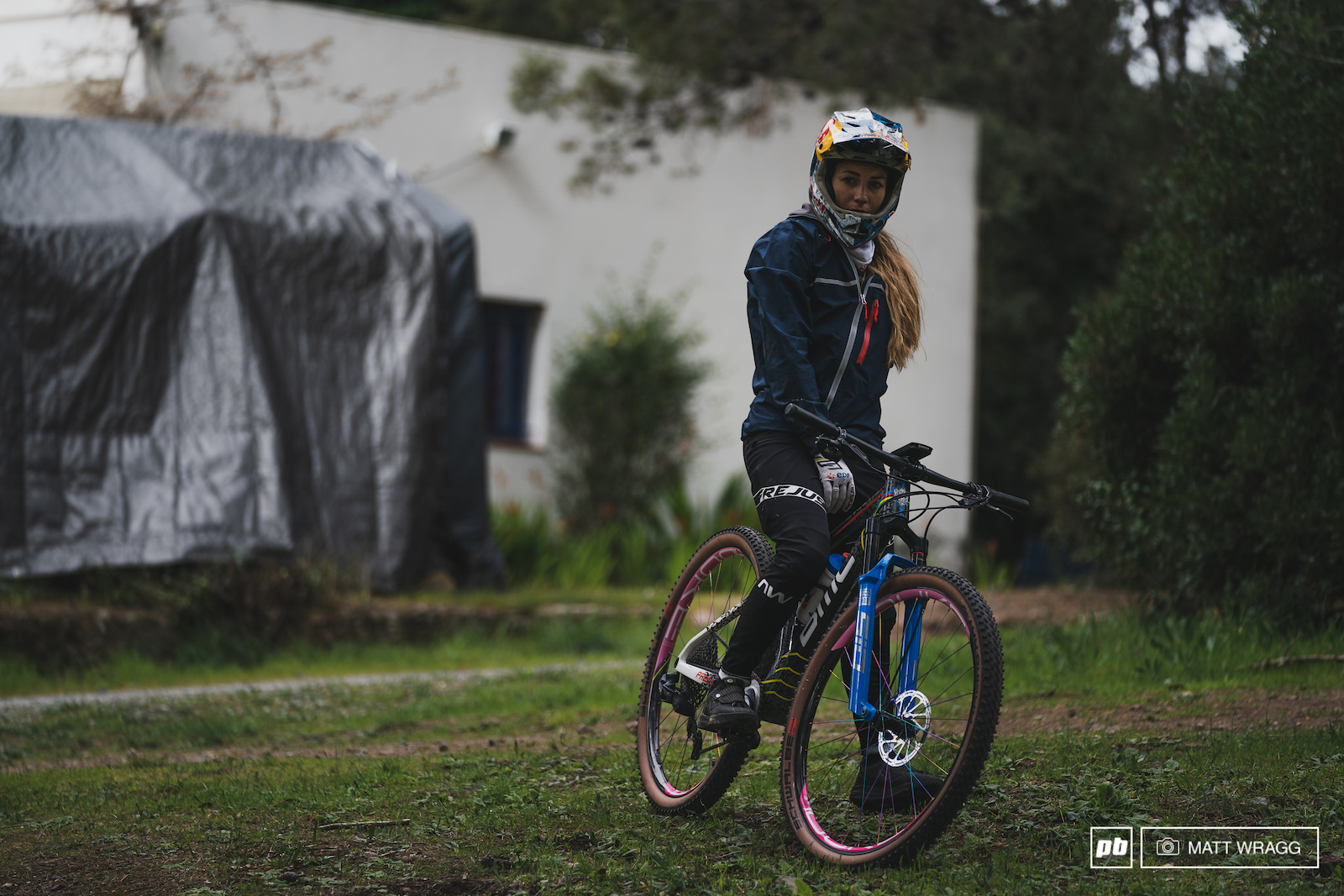
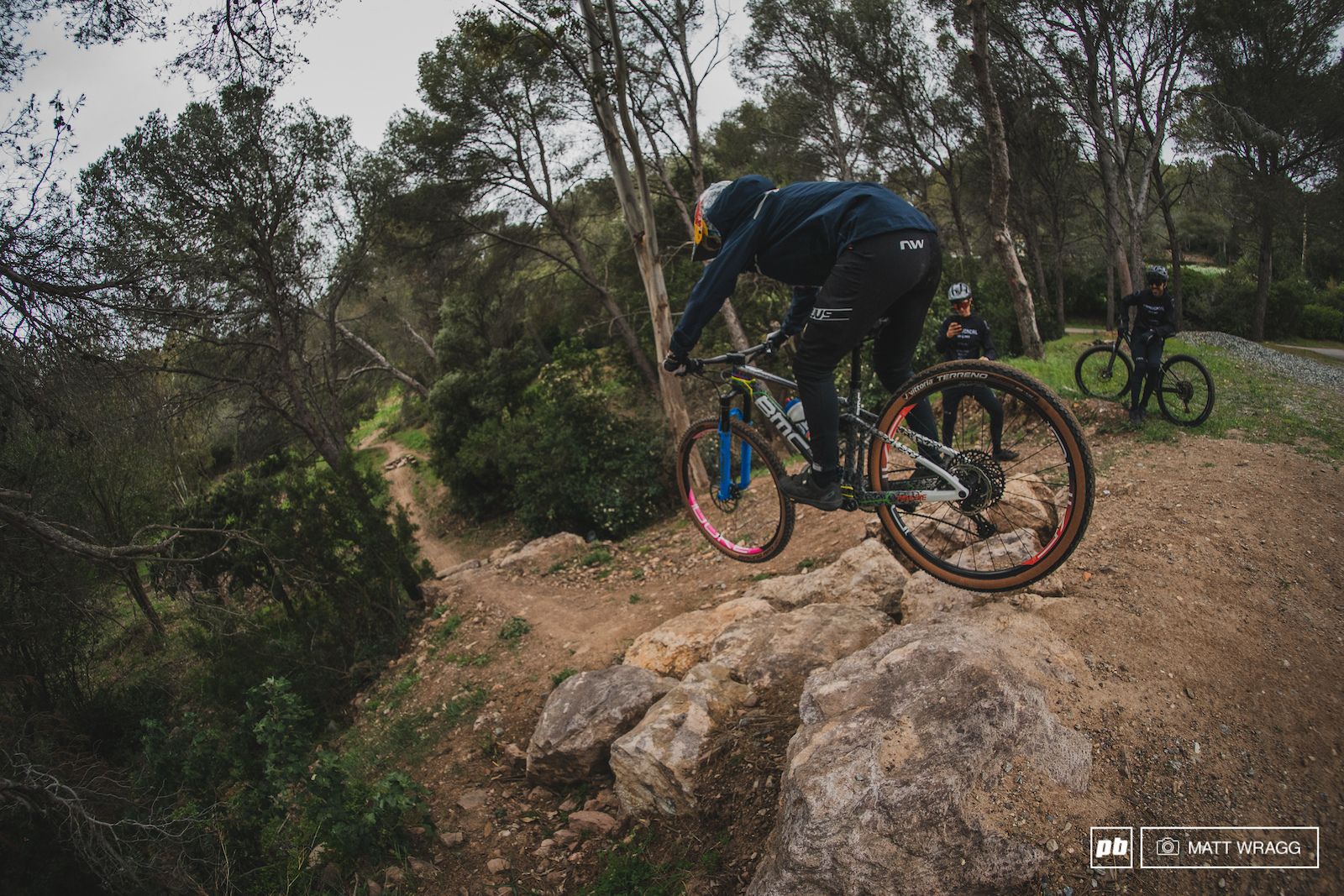
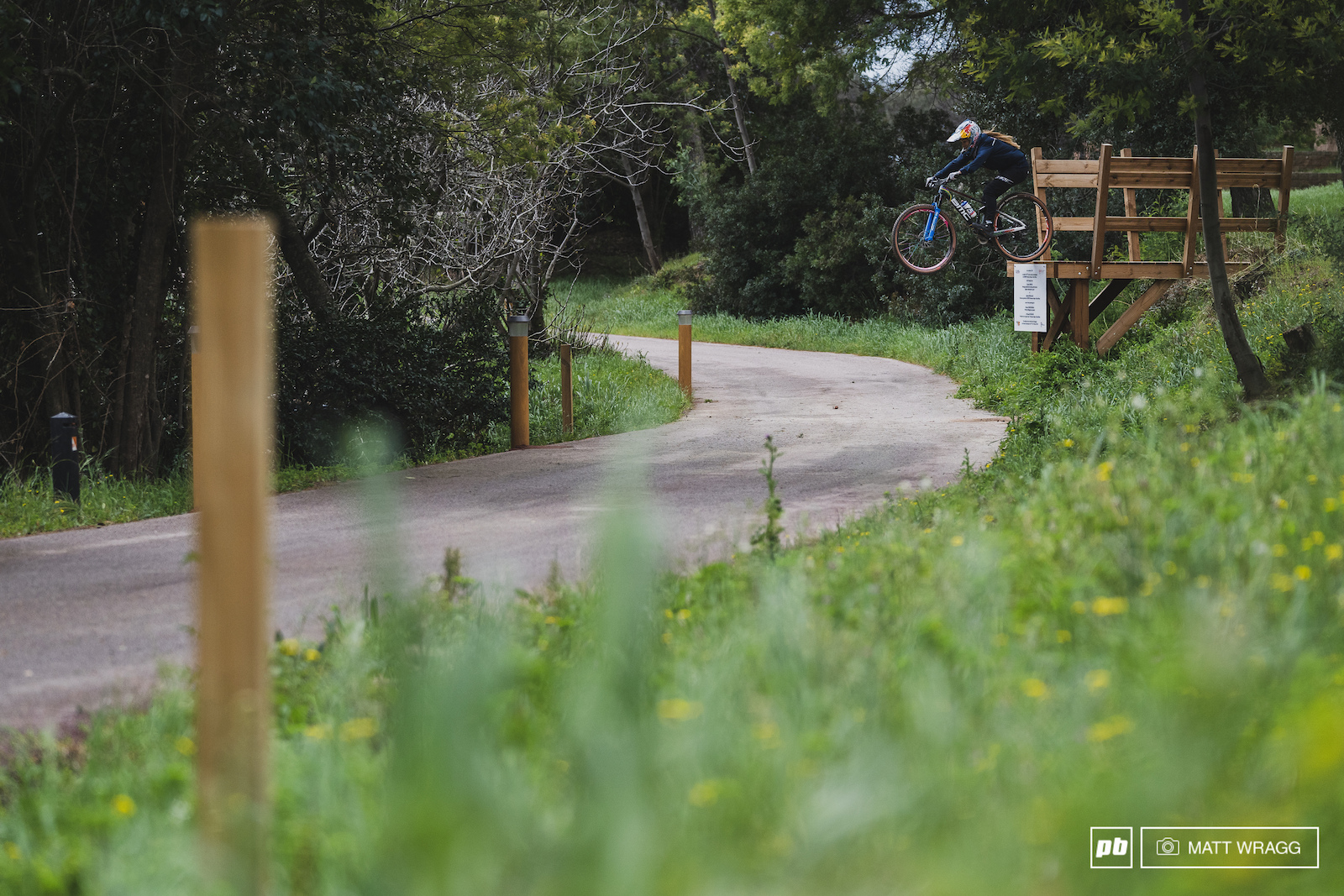
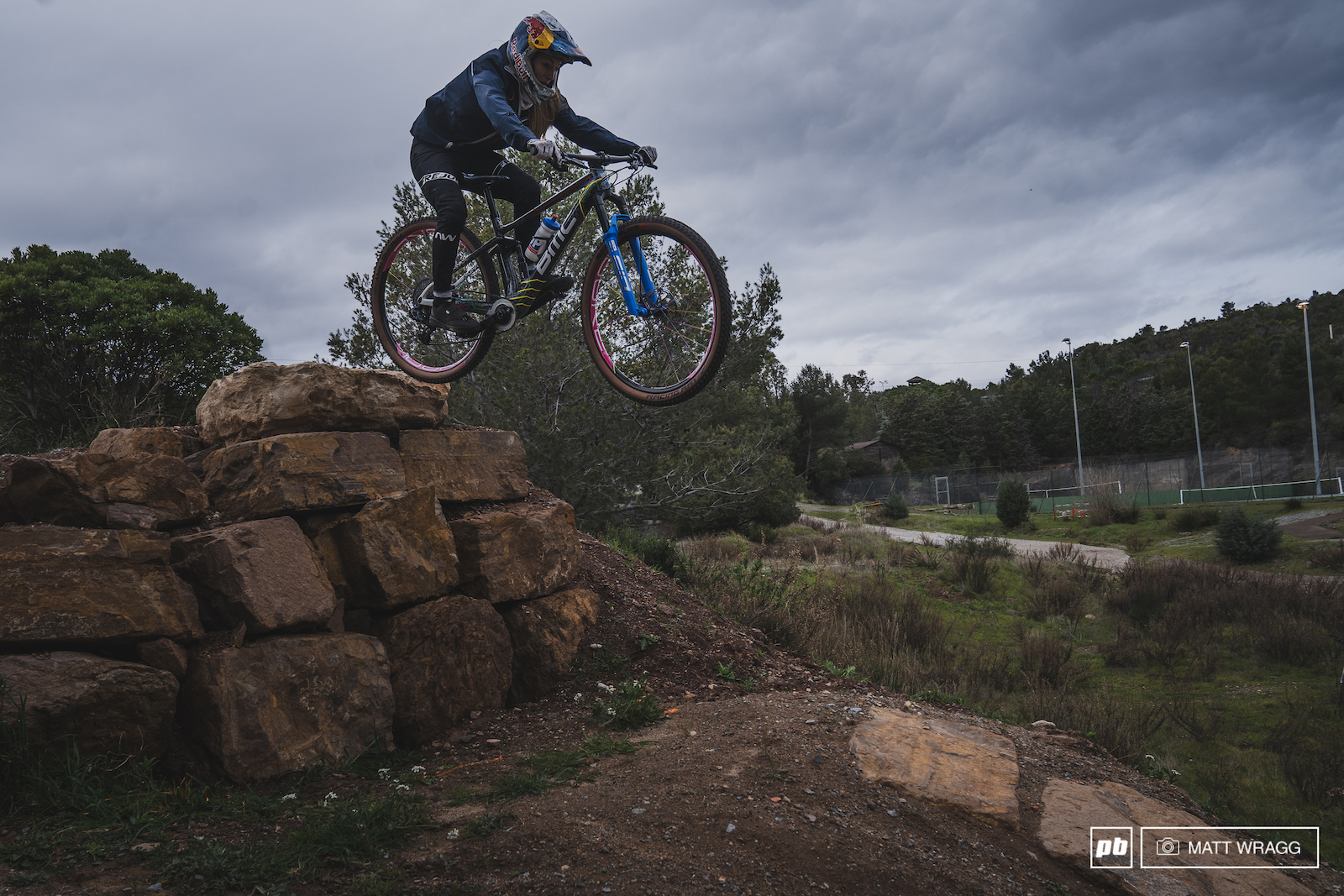
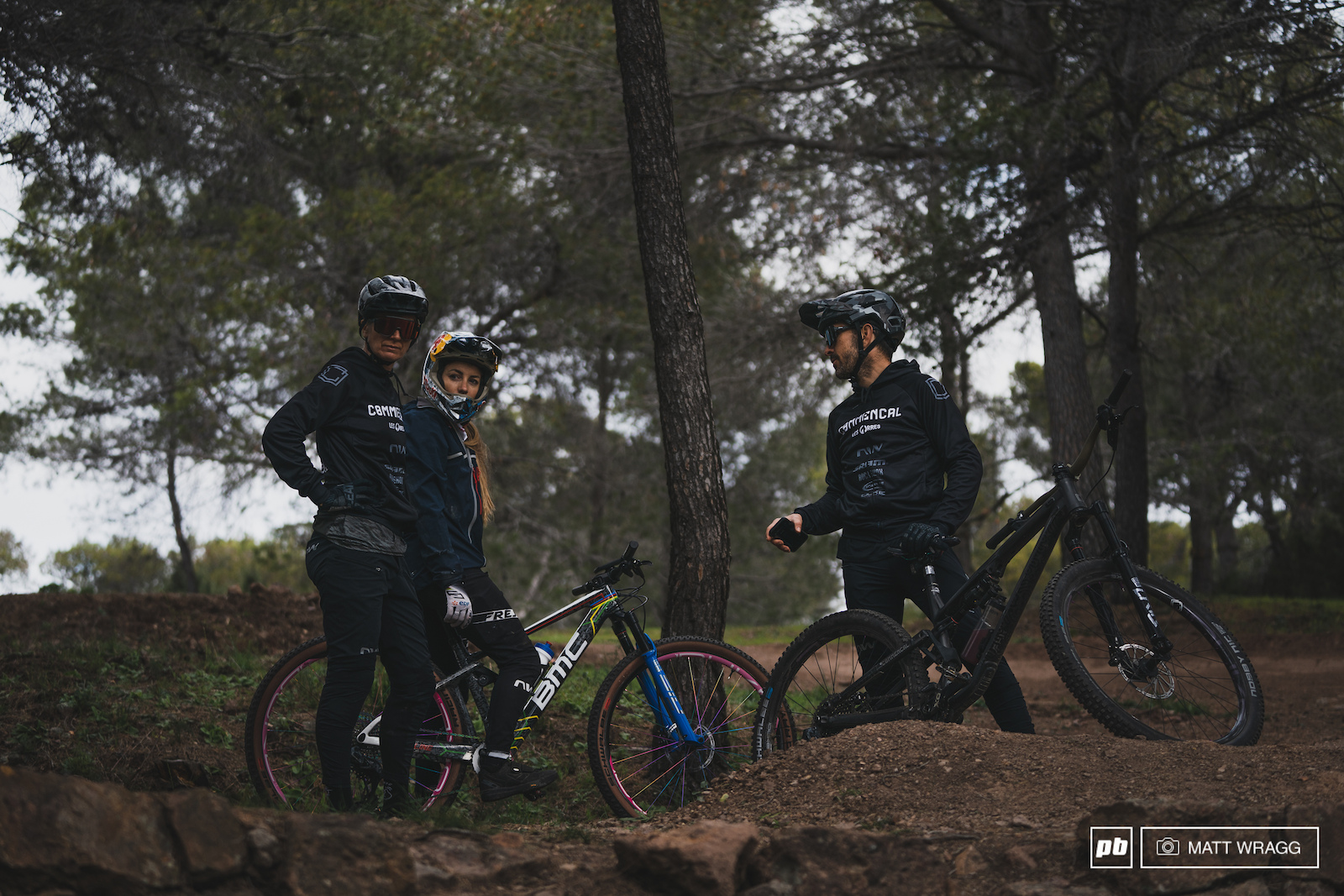
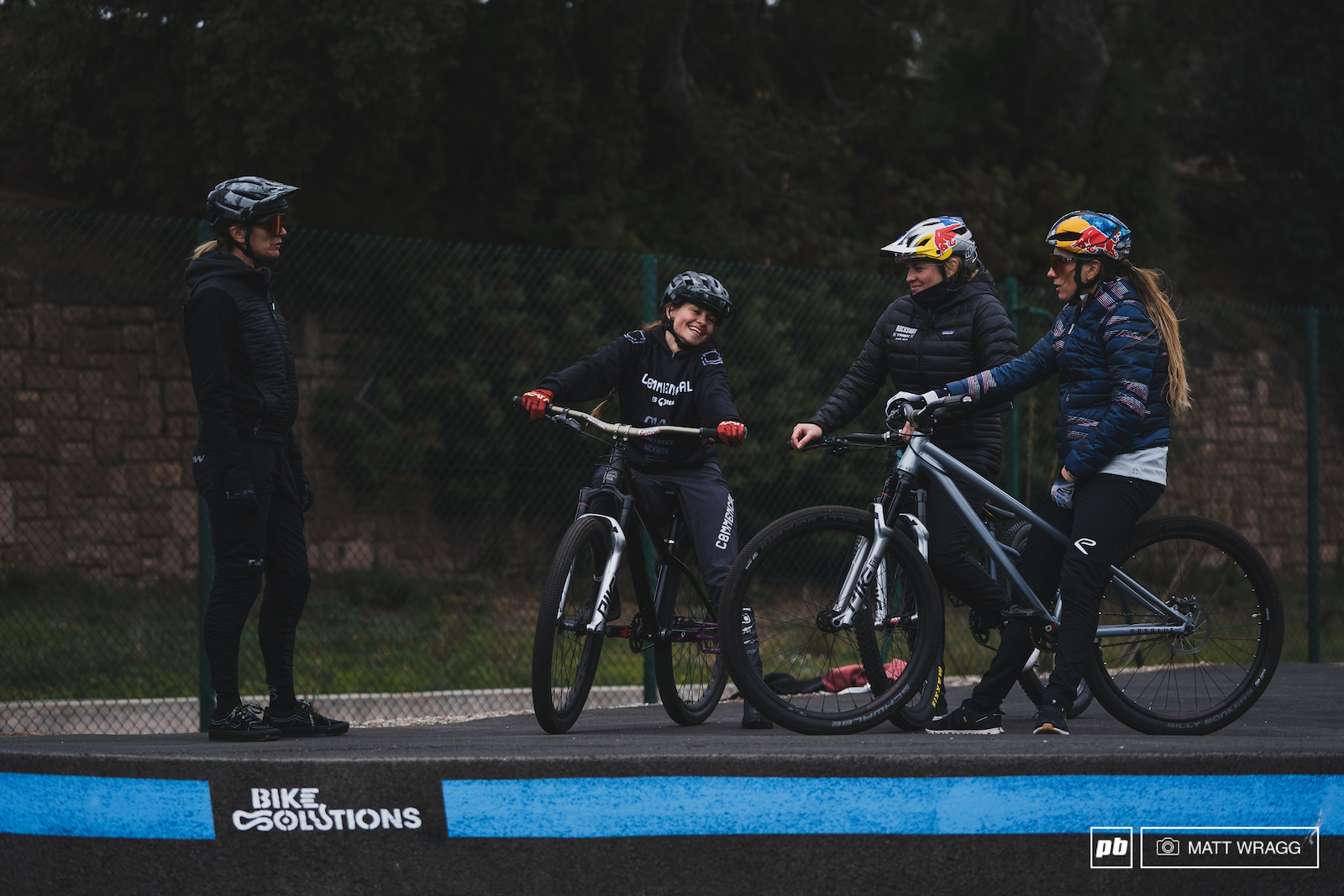
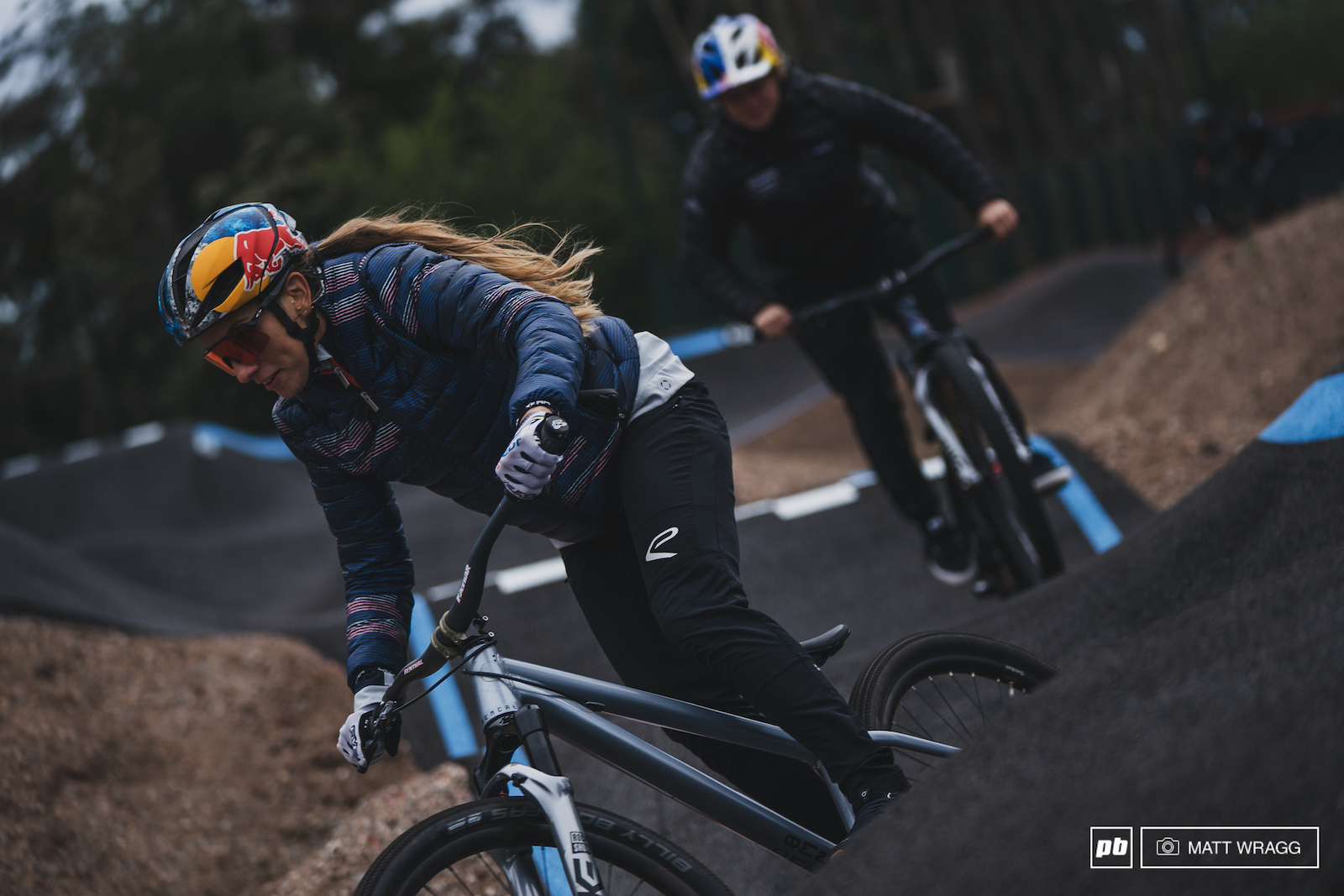
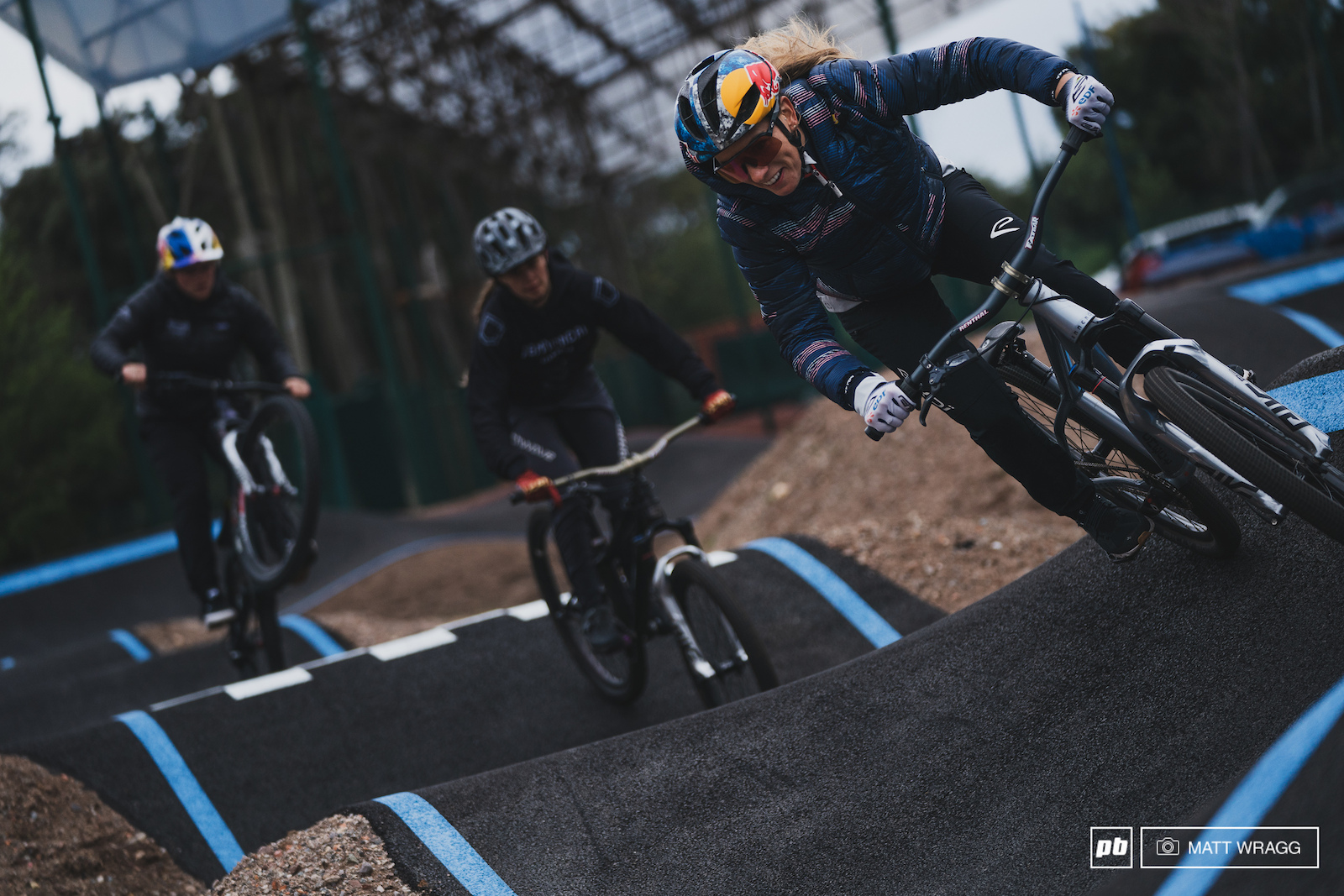
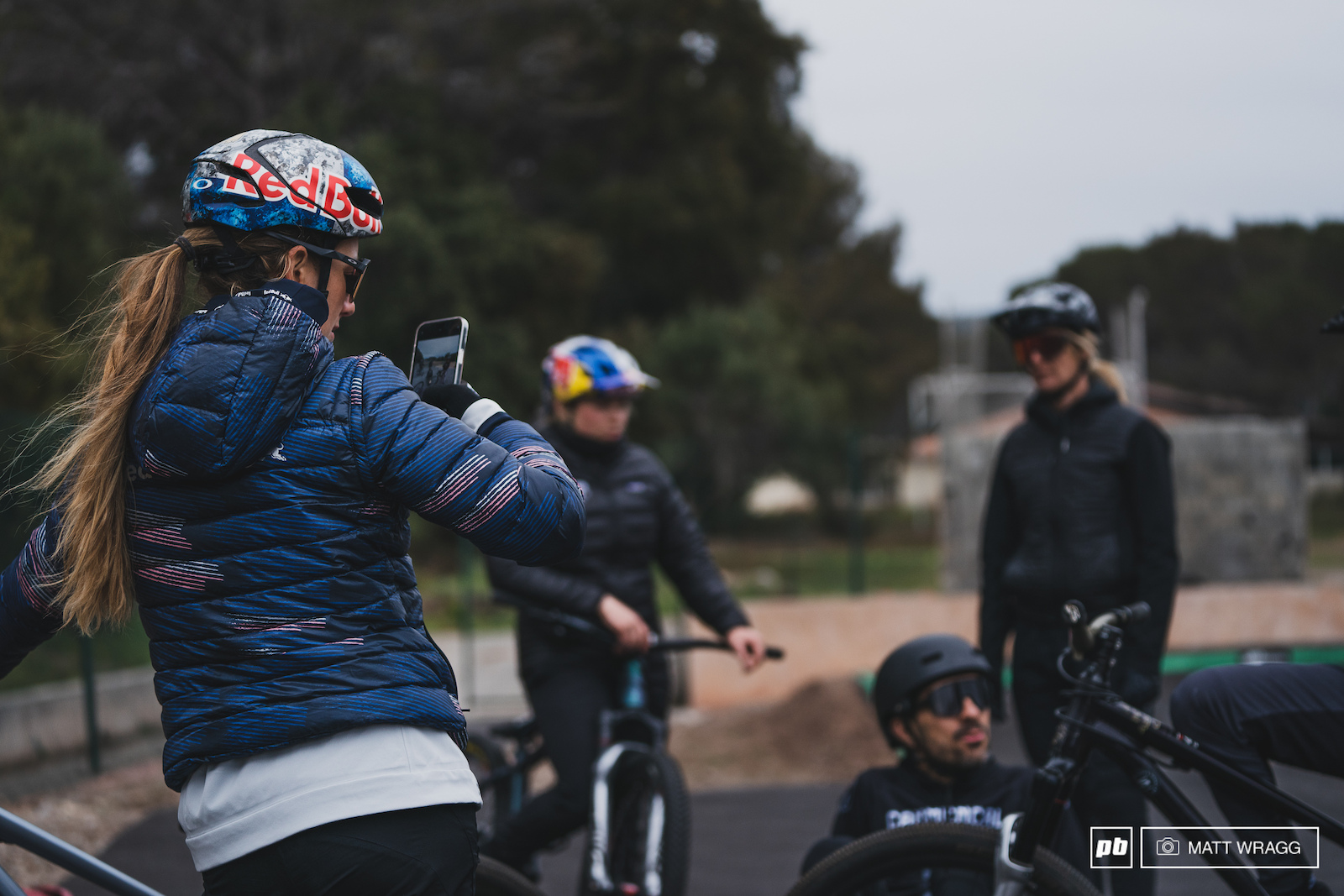
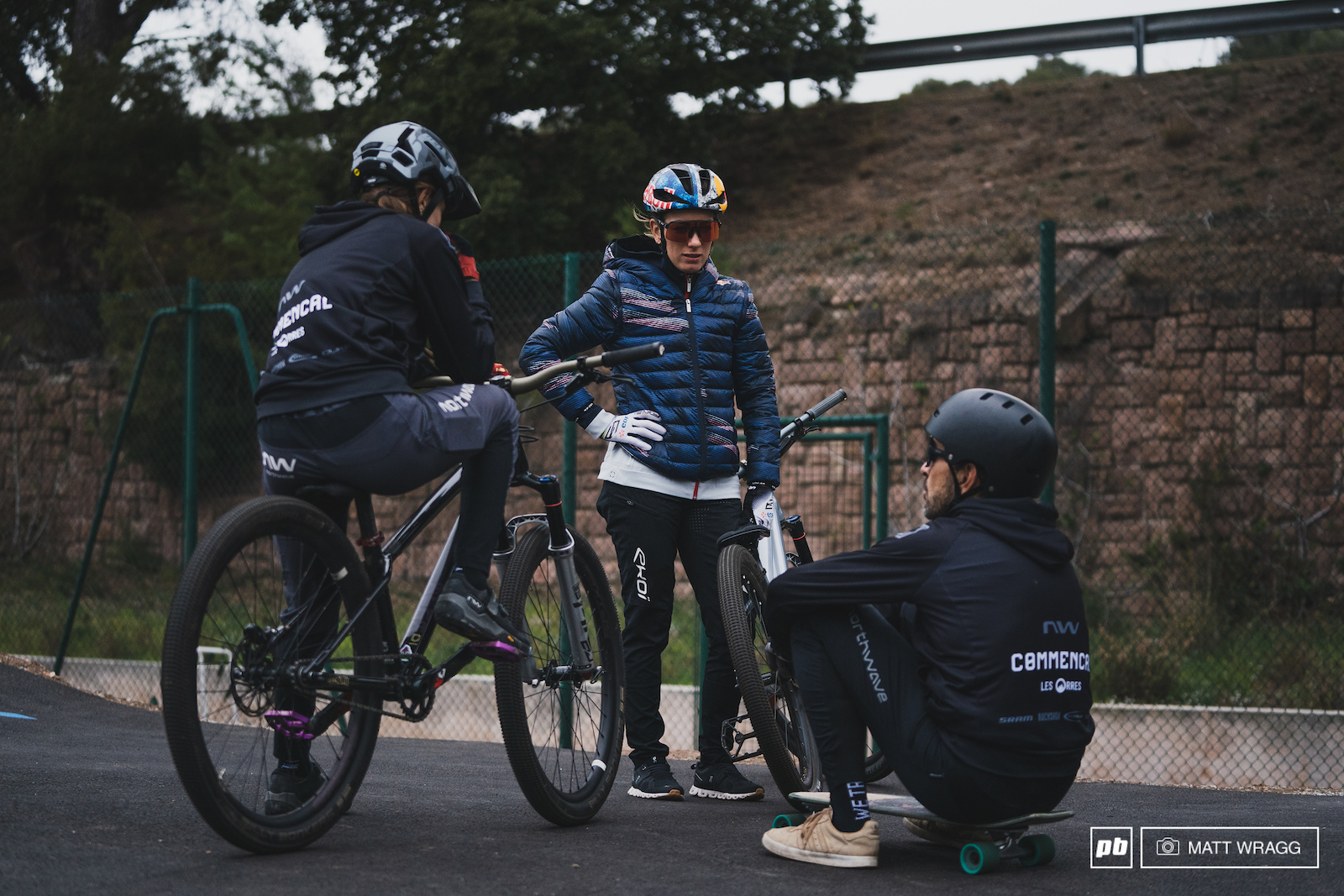
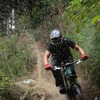
I just don't know how she sits down with balls that big.
I wish we could lose this a measure of how someone is doing. This article tries to highlight how difficult it is to open up about eating disorders/depression. But there still seems to be an expectation that social media shows how happy professional athletes are (smiling in almost every frame). I would love to see sponsors (and fans) celebrating authentic stories on social media, the good the bad and the ugly. It would make the ugly far less stigmatised; good for the athletes, good for the fans that also struggle. It’s not easy to be that candid, but we should do what we can to make it easy.
There are those who keep a very one-dimensional view on display and are very prominent. Pfp keeps it way more real than those.
In answer to the questions ... no, I definitely can't imagine my career being defined by a performance every ~4 years.
These articles help to view those athletes who don't get gold with just as much interest and respect as those who do. Not that PFP needs any qualifications, she's off the chart amazing.
I can't tell because of the glasses, but who's the guy sitting in the commencal hoodie? I know she did a lot of riding with Kilian Bron this summer.
Great article. Those are some serious jumps, especially on an xc bike! Good luck PFP!
Bugs me when MTB races are won on legs/lungs alone. We already have cycling disciplines for that type of rider.
If everyone became as equally technically competent as Jolanda, and the courses made more technical, the winners would inevitably still win due to being more physically fit (which even happens in DH)... Then there would be discussions from people about how XCO still is not technical enough and we are back to square one.
I don't know though, maybe that would make the sport less appealing to those big names and therefore less funding in the sport.... whatever, I'm just a guy on the internet that would like to see more bike handling skills across the board in XC racing.
pinkbike.com/news/trans-vesubienne-2020-the-downcountry-world-champs.html
An xco bike would fall apart on certain courses, but would be appropriate for something less gnarly.
Perhaps you are used to soft courses.
I suggest you look at what you wrote before you start arguing something different.
Trust the French to be the ones creating such a savage event.
There's also, however, additional situational pressure that makes things harder - and makes at least the mental health piece more challenging. There's a pretty well documented negative effect of social media use/exposure on mental health in the general population; given that athletes depend on social media for their livelihood, you can probably speculate that they'll be exposed to that as well. And then there's the pandemic, which just gave us a bit over two years of emotional rollercoaster, additional uncertainty/anxiety, and a general sense of not being in control of your own destiny.
Leigh - she was awesome. But precision and speed are through the roof now; one tiny tiny mistake can set you up for a tree baptism. The speeds and technicality are insane compared to that era. The bikes are way way better, the competition in the training is way way better. Higher speeds in more technical terrain equals snafu.
Rewatch Leigh and tune in to worlds this weekend - it's an entirely different sport.
Entirely different sport, it evolved for sure, but try riding a 95' race bike today, the skill required to go fast was still...required, you make it sound like it was easy to ride back then. And your training comment is ignorant, the peak performance riders of that era weren't all drinking vodka, they were in the gym, on the road bikes, getting physical testing done, all trying to find any marginal gains on their competition.
No I did not make it sound like it was easier to ride back then. It was hard just like it is hard now.
No your comment regarding my ignorance is quite frankly amazingly ignorant for someone in the sport.
Training consists of memorizing each Stone rock root, every freaking millimeter due to multiple scouts filming every square inch of the course. Riders watch them over and over to commit everything to memory. Part of training is feedback for setup using telemetry. Did you have that back in the day - of course not. To not consider that is brain dead on your part. Did you guys emphasize core training, activation, balance balls, juggling? No. Apparently you don't realize that's what every Rider does now.
Since you missed my point entirely I will have to reiterate but it's like talking to a stick or a stone: the tools are at a much much higher level. But if you have to ask the question to an internet forum given your background I guess you don't know very much.
This is exactly like arguments in basketball, where people from back in the day think their sport was the greatest during that era and everybody now is soft. The athletes are all tremendously good now and the competition is through the roof in all sports.
I'll let you know if I think of anything else.
I'm sure she knows what she's doing, plus if I was given a Red Bull helmet I'd wear it riding to the supermarket
Got it.
Does anybody remember that storm over weight? Hahaha. Pauline cut a lot of weight since the beginning of year and almost won Euros.. who would have thought?! I told you so. Again.
Smh the Olympic thing - so many excuses. Why don't you just admit you almost killed Jolo riding like a knob.
It's clear her mental issues affect her on and off the bike. She's getting a good grasp of handling them off. It's the stuff she does on the bike that's problematic at times. Regardless I still like her if she doesn't pull some wackiness.
Who believes that?
However, the question is if you believe her claim?
She has a habit of bending reality.
Also why did she fail to turn up to a couple of the races this year.
Mountain Biking is a happy escape me so reading about people riding their bikes depressed sort of rubs me the wrong way.
All top level sport is unhealthy - both phisically (injuries, operations, recoveries etc...) and mentally (non-stop pursue for being perfect, depressions, absent from family/friends etc...)
But it is fun to watch - just don't confuse it with recreational level of sports which is fun and healthy, these are 2 totaly different worlds
Within Chimpanzee communities, if and when a member is unfairly victimized, they are consoled by the remaining members. This in turn elevates them, albeit briefly, to being of paramount importance to the group. The other members will console the victimized chimp by grooming them. This undoubtedly causes a release in Chimp feel-good chemicals.
People are rather genetically close to chimpanzees. We console victims as well. But we have discovered that simply announcing ourselves as being victims of "x" will render consolation. Basically, we like to broadcast and exaggerate our troubles for sympathy and manage to leverage that sympathy in various ways. It's what a smart (but not too smart) primate would do.
Nowhere did I suggest that is what PVP is doing, only that it might help to explain what @mo-T says he's seeing.
It COULD also be a marketing strategy, people love comeback stories, celebrities regain popularity way more when they bounce back from "problems" they even gain more fans since is common for their haters to turn into fans after "disaster" stroke. We live in socialmedia/influencer times, internet popularity matters.
Many are probably "extreme" people, driven by dopamine, focused on training and training for one single event and so when the event is over they're like "and now what ?".
I wish everybody would dive into neuropsychology (I mean at least the basics) cuz' overall humans think they're way more in control of their brain than they really are, it's more our brains that control us than the other way around.
In the case of those atheltes, it's not a matter of "ok now I'm just gonna ride my bike and travel and be happy until the next olympics", it's really the chemical reactions of the brain that kind of stall, there's no goal in sight anymore and so no drive, no happyness.
As Ischiller says, I remember reading about this for the LOTR trilogy. People on this movie set had been living pretty much another life inside of life for 6 ? 7 ? 8 years ? (time it took to shoot the 3 movies) and when it was over there was some kind of grieving process to be done.
Maybe that's precisely because they're so focused, devoted to that goal, that maybe they don't keep enough "ties" with normal life, and it's ok as long as that goal is in sight but once it's over, they're back to a life that's kinda empty.
Also I'm not well versed in depression, but there are different kind, for instance reactive depression (which would supposedly be what we're talking about) and chronic depression where it may be more genetical based and more difficult to treat.
I can see PFP having an unorthodox Chemical reaction in her brain, but this is a hobby for most of the customers so it looks kinda preposterous to talk about her depression when she is getting paid for ridding. Stay humble, face the problem head on, and keep it to you and your close ones.
Didn't RDJ talk about alcoholism ?
On the contrary, I'd rather people talk about their mental health more. We often talk about physical health (unless it's hemorrhoid maybe :p) but mental health is still mostly taboo and that's what bothers me much more.
Having understood in the last +-5 years that I have wasted most of my life due to a neuroatypical family, I wish all kind of mental health issues were much more common knowledge and treated, be it depression, ADHD, autism, personality disorders, etc.